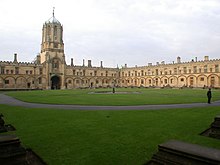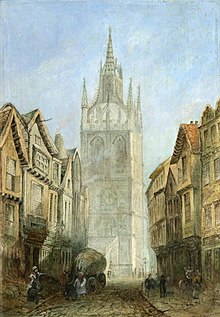Henry Anderson (Cavalier)
Sir Henry Anderson Kt | |
|---|---|
| MP for Newcastle-upon-Tyne | |
| In office 1640–1643 | |
| Preceded by | Sir Peter Riddel Thomas Liddell |
| Succeeded by | John Blakiston |
| MP for Newcastle-upon-Tyne | |
| In office 1614–1626 | |
| Preceded by | Sir George Selby Henry Chapman/Chipenham |
| Succeeded by | Sir Peter Riddel |
| Personal details | |
| Born | Henry Anderson 1582 Newcastle-upon-Tyne, Northumberland |
| Died | 1659 (aged 76–77) Newcastle-upon-Tyne, Northumberland |
| Nationality | English |
| Political party | Royalist |
| Spouse(s) | Mary Remington Frances (d.1652) Elizabeth Pinour |
| Children | 5 |
| Parent(s) | Henry Anderson (d.1605) |
| Relatives | Sir Francis Anderson (cousin) |
| Alma mater | Christ Church, Oxford Gray's Inn |
| Occupation | Politician |
Sir Henry Anderson Kt (1582–1659) was an English landowner and politician who was elected to represent Newcastle-upon-Tyne in the House of Commons at various times between 1614 and 1643 and supported the Royalist cause during the English Civil War.
Early life[]

Anderson was the son of Henry Anderson (d.1605) of Newcastle-upon-Tyne, Northumberland, and his second wife Fortune Collingwood, daughter of Sir Cuthbert Collingwood of Eslington, Northumberland.[1][2] His distant cousin was the Royalist Sir Francis Anderson.
He matriculated at Christ Church, Oxford on 24 November 1599, aged 17, when he was of Long Cowton, Yorkshire.[3] He later studied at Gray's Inn.[1]
Career[]
He was of London when he was knighted at the house of Sir Thomas Hasilrig at Holmby Alderton (4 August 1608).[4] He was Mayor of Newcastle-upon-Tyne (1613–14).[5][6] In 1614, Anderson was elected Member of Parliament for Newcastle-upon-Tyne (re-elected in 1621, 1624, 1625 and 1626)[7] and was High Sheriff of Northumberland (1615–16).[5] Anderson sold his lands in Tyneside in the later 1620s and settled on an estate at Long Cowton, Yorkshire.[1]
In 1637, he gained an audience with Charles I (through Henry Rich, 1st Earl of Holland and Sir Thomas Jermyn) who he tried to persuade to abandon his policy of Ship Money but the king was angered and rebuked him for his bold manner.[1]
In November 1640, Anderson was re-elected MP for Newcastle-upon-Tyne in the Long Parliament[7] and sat until he was removed for supporting the king on 4 September 1643. In 1649, Anderson was imprisoned for distributing royalist propaganda and his debts ensured he remained in prison for the rest of his life. He died between 7 March and 29 June 1659.[1]

Family[]
Anderson married Mary Remington, daughter of Richard Remington of Lockington, Yorkshire, and they had four sons (including Richard) and one daughter.[5] Anderson married for the second time to Frances (d. 1652), and married for the third time to Elizabeth Pinour, widow, the daughter of Constance Hopkins.[1][2]
Arms[]
|
References[]
- ^ a b c d e f History of Parliament Online - Anderson, Sir Henry
- ^ a b c Archive.org - G.W. Marshall, The Visitation of Northumberland in 1615 (1878)
- ^ 'Alumni Oxonienses, 1500-1714: Abannan-Appletre', Alumni Oxonienses 1500-1714: Abannan-Kyte (1891), pp. 1-28. Date accessed: 16 May 2011
- ^ Knights of England
- ^ a b c C H Hunter Blair The Sheriffs of Northumberland Archaeologia Aeliana: Or, Miscellaneous Tracts Relating to Antiquities
- ^ Newcastle City Council Mayors and Sheriffs 1600-1699
- ^ a b Willis, Browne (1750). Notitia Parliamentaria, Part II: A Series or Lists of the Representatives in the several Parliaments held from the Reformation 1541, to the Restoration 1660 ... London. pp. 166–239. Browne Willis gives Sir Francis Anderson in 1621 but Venn states Henry was MP in 1621
- 1582 births
- 1659 deaths
- Anderson family of Newcastle-upon-Tyne
- Cavaliers
- High Sheriffs of Northumberland
- English MPs 1614
- English MPs 1621–1622
- English MPs 1624–1625
- English MPs 1625
- English MPs 1626
- English MPs 1640–1648
- Mayors of Newcastle upon Tyne
- Politicians from Newcastle upon Tyne
